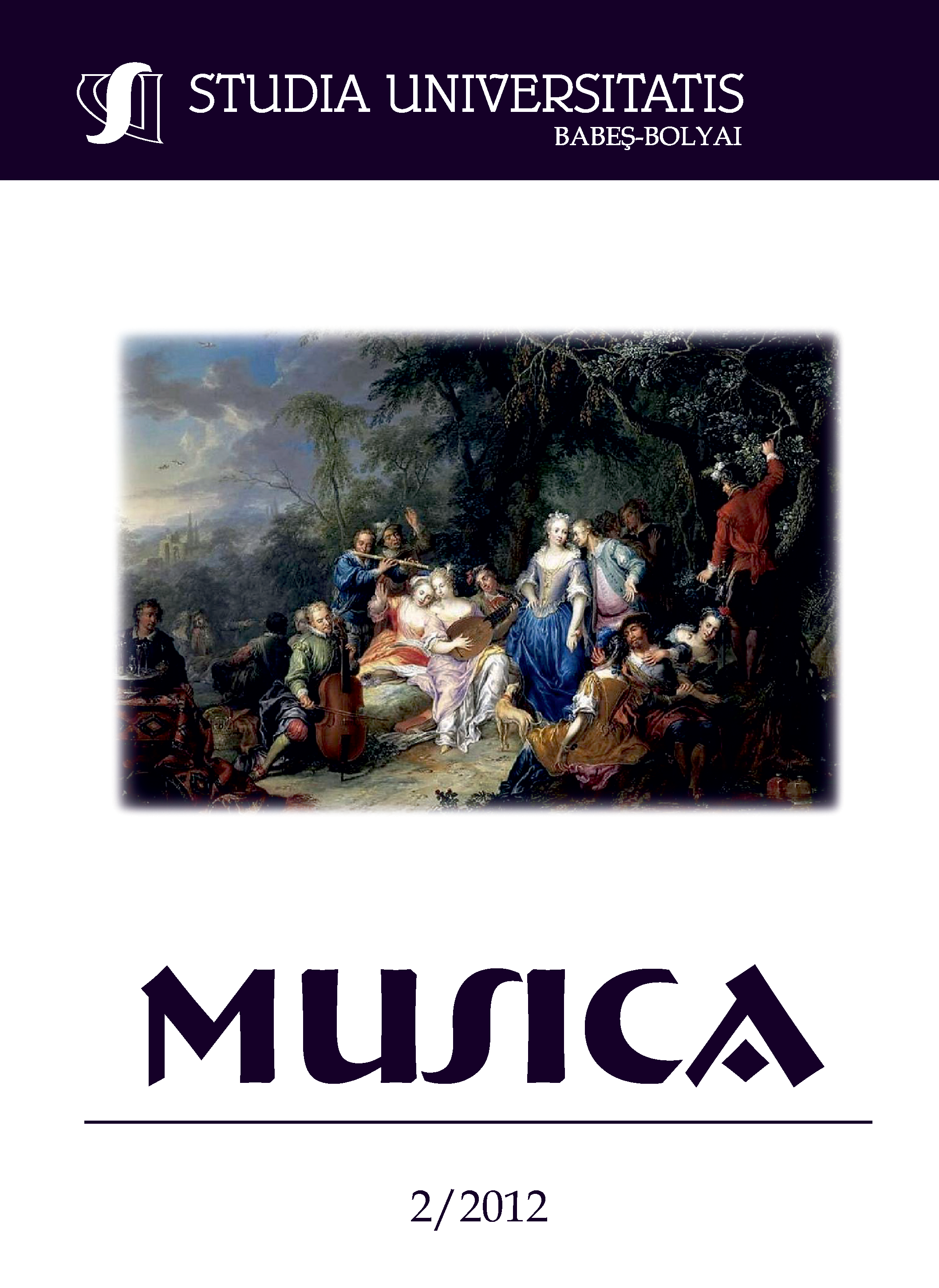DIE UNTERSUCHUNG DER WERTE RELIGIOSO UND „LUGUBRE“ IN DEN KLAVIERWERKEN „AUX CYPRÈS DE LA VILLA D’ESTE – THRÉNODIE I., II.” UND „SURSUM CORDA” VON FRANZ LISZT
Keywords:
Franz Liszt, piano works, Années de Pèlerinage, Troisième Année, musical analysis, aesthetic values, lugubre, religiosoAbstract
The atmosphere of the late works (composed between 1877–1885) changes more and more, the eroico, patetico and amoroso character almost disappears, while the ethical and aesthetic values of lugubre, religioso and macabre-obstiné get emphasized. This paper intends to point upon the first two mentioned values through the analysis of three piano pieces from the cycle Années de Pèlerinage. Troisième Année. Liszt finds for his new spiritual experiences new genres, one of which would be the funeral piece (such as the two threnodies of the cycle). In the composition Sursum corda, Liszt tries, probably for the last time, – through the huge metaphor of the fight for the birth of the melody – to succeed the ascension. The musical analysis proposes to identify and exemplify a few of lisztian procedures, compositional techniques and means of expression, which – on the one hand – do define the structure, the melodic and harmonic aspects of the musical discourse, and – on the other hand – aim to express feelings, and through these certain aesthetic and ethical values.
References
Angi, István, Értéktől jelentésig [Vom Wert zur Bedeutung], Pro Philosophia Verlag, Cluj-Napoca, 2004.
Angi, István, Prelegeri de estetică muzicală [Musikästhetische Vorlesungen], Editura Universităţii Verlag, Oradea, 2004.
Bárdos, Lajos, Liszt Ferenc, a jövő zenésze [Franz Liszt, Musiker der Zukunft], Akadémiai Kiadó, Budapest, 1976.
Hamburger, Klára, Liszt Ferenc zenéje [Die Musik von Franz Liszt], Balassi Verlag, Budapest, 2010.
Frank, Orszkár, A romantikus zene műhelytitkai III. – Liszt Ferenc: Années de pèlegrinage [Die Fachgeheimnisse der romantischen Musik III. – Franz Liszt: Années de pèlegrinage], Akaprint Nyomdaipari Kft., Budapest, 2004.
Grabócz, Márta, Zene és narrativítás [Musik un Narrativität], Jelenkor Kiadó, Pécs, 2003.
Hamilton, Kenneth, The Cambridge Companion to Liszt, Cambridge University Press, 2005.
Liszt, Franz, Válogatott írásai I., II. [Ausgewählte Schriften I., II.], Zeneműkiadó, Budapest, 1959.
Merrick, Paul, Revolution and Religion in the Music of Liszt, Cambridge University Press, 1987.
Molnár, Antal, Romantikus zeneszerzők [Komponisten der Romantik], Magvető Könyvkiadó, Budapest, 1980.
Ratner, Leonard G., Romantic Music: Sound and syntax, Schirmer Books Edition, New York, 1992.
Sólyom, György, Kérdések és válaszok Liszt Ferenc pályájának utolsó szakaszában [Fragen und Antworten in der letzten Schaffungsperiode von Liszt], Akkord Kiadó, Budapest, 2000.
Szabolcsi, Bence, Szabolcsi Bence válogatott írásai [Ausgewählte Schriften von Szabolcsi Bence], Typotext Verlag, Budapest, 2003.
Szelényi, István, Gyakorlati modulációtan [Praktische Modulationslehre], Zeneműkiadó Verlag, Budapest, 1960.
Szelényi, István, A romantikus zene harmóniavilága [Die Harmoniewelt der Romantische Musik], Zeneműkiadó Verlag, Budapest, 1965.
Walker, Alan, Franz Liszt, III: The Final Years, 1861–1886, Cornell University Press, New York, 1997.
Walker, Alan (ed.), Franz Liszt, The Man and His Music, Taplinger Publishing, New York, 1970.
Downloads
Published
How to Cite
Issue
Section
License
Copyright (c) 2012 Studia Universitatis Babeș-Bolyai Musica

This work is licensed under a Creative Commons Attribution-NonCommercial-NoDerivatives 4.0 International License.



